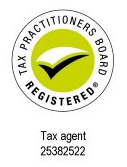As the end of the financial year (EOFY) approaches, it is important for businesses to prepare themselves to achieve the best outcomes. It’s time for businesses to reconcile their accounts, file their tax returns, and make necessary adjustments to their financial strategies.
Proper preparation can help to maximise tax refunds or reduce the tax payable and avoid costly mistakes. Here are some tips to prepare for the EOFY.
TAX DEDUCTIONS AND PLANNING
Businesses have the advantage of deducting the cost of their business activities from their income, which can help reduce their tax bill. Deductible expenses can range from cash expenses like business supplies and services to non-cash expenses like the depreciation of business assets.
You can claim deductions for most business expenses, as long as they directly relate to earning your income. You must have records proving the expenses that you claim as business deductions.
When implementing any tax planning strategies, it’s important to keep in mind that any major asset purchases should be focused on generating income – the tax benefit should be secondary and care should also be taken not to negatively impact cash flow to the point where funds are not available for essential expenses.
Actions before 30 June include:
- Pay superannuation to obtain a tax deduction in this financial year.
- Make additional superannuation contributions up to your cap if you have the available cash flow.
- Review accounts receivable (debtors) ledger and write off any bad debts.
- Review stock on hand and write off slow-moving or obsolete stock.
- Review work in progress (WIP) and make adjustments if required.
- Bring forward tax-deductible purchases if you have the available funds.
- Review the asset register and scrap any obsolete equipment.
- Pay director’s fees or dividends.
- Pay staff bonuses.
- Ensure that trustee resolutions are prepared and signed before 30 June for all discretionary trusts.
- Business owners who have borrowed funds from their company must ensure that the appropriate principal and interest repayments are made by 30 June or declare dividends to repay these loans, otherwise they will be deemed as unfranked dividends.
- Complete a stocktake with valuation excluding GST.
BUSINESS PLANNING
With the financial year coming to a close, it will also be important to start planning for your business.
Look at whether you met your targets and what you can do differently next financial year.
Take time to set yourself up for the year ahead. Consider what worked well and what didn’t. What do you enjoy about your business, and what can be improved? What are your goals and budgets for next year and beyond? Whatever you decide for your business, it is essential that you track your progress.
Regularly reviewing and updating your plans will help you to:
- assess whether your strategies are working
- adapt to any changes in your environment
- make the most of new opportunities as they come your way
- prioritise and maximise your effort (work smarter, not harder).
It is also crucial to conduct a thorough review of your finances either independently or with the assistance of your accountant.
This includes:
- A review of your prices or fees for the new year.
- A review of wages and superannuation for the new year.
- Prepare your budget for the new year.
- Consider mini budgets for sales lines, employee expenses, purchases, and motor vehicles.
- Analyse your business structure with your accountant to ensure that it still suits your needs.
- Reflect on and reset your business goals.
As your business grows and expands, you may decide to change your business structure or to restructure your business. Compliance and taxation regulations differ depending on your business structure and the right structure can save tax and help you grow.
If your circumstances change, you may also need to update your level of insurance cover. Make sure a broker works with your business to make sure you get the best deal from an insurance company.
YOU DON’T HAVE TO DO IT ALONE
While it’s common for small-business owners to handle all aspects of their business, including finances, seeking assistance during EOFY is crucial.
Rushing the process may result in errors, fines, or missing out on eligible benefits. Hiring an accountant, or bookkeeper to support you through tax time can make the process smoother and alleviate some of the burdens.









